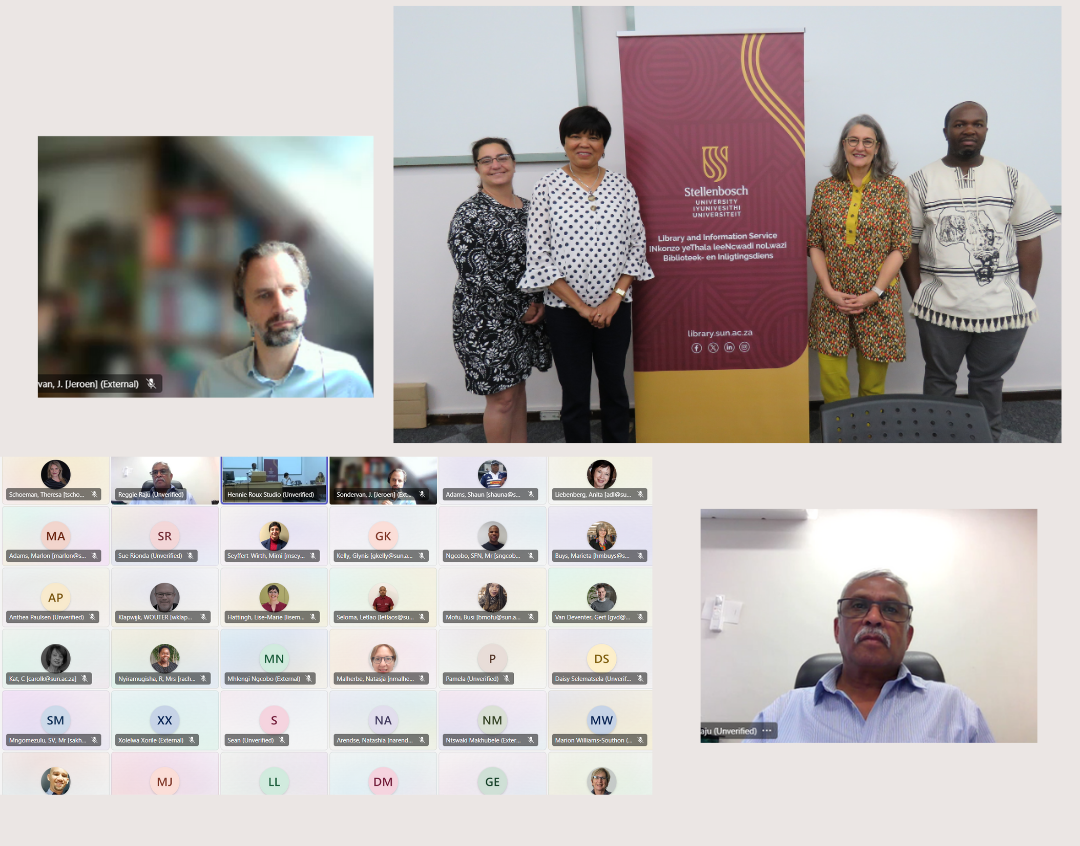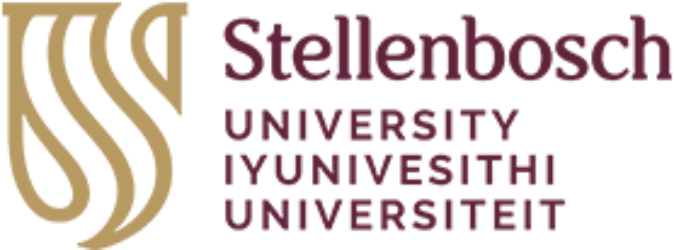On 24 October 2024, Stellenbosch University (SU) Library celebrated International Open Access Week with a hybrid event focusing on the theme “Community Over Commercialisation.” Held in the SU Library Auditorium and streamed online, the event featured a panel discussion facilitated by the SU Library’s Director of Research Services, Dr. Siviwe Bangani. The panel included insights from influential voices in Open Science, both locally and internationally.
On SU’s Open Access Commitment
Opening the Discussion, Ms Ellen R. Tise, Senior Director: Library and Information Services, highlighted the university’s longstanding commitment to Open Access, from signing the Berlin Declaration in 2010, hosting Africa’s first Berlin Open Access Conference in 2012, and the Open Repositories conference in 2023. She spoke about the financial challenges, such as high subscription fees and fluctuations in local currency, that limit access for South African institutions. Tise also underscored the inequalities caused by “double dipping,” where publicly funded research becomes costly for the researchers themselves. She stressed that Open Access is essential for ensuring that African scholarship reaches a global audience.
Connecting Scholarship with Society
Prof. Marena Manley from SU’s Food Science department discussed how Open Access extends research impact beyond academia to benefit society. “It’s not just for other researchers; Open Access reaches the public,” she noted. Prof. Manley also emphasised quality control in Open Access publications, advocating for “open reviews” that involve public engagement to ensure research remains relevant and accessible. She highlighted the value of peer review and community feedback in maintaining high standards, comparable to those of traditional journals.
Reclaiming Scholarship: Challenging the Commercialisation of Knowledge
Dr. Reggie Raju, Director: Research & Learning, University of Cape Town (UCT), spoke on the dominance of commercial publishers, arguing that scholarship should be a public good rather than a profit-driven commodity. He referenced initiatives like Diamond Open Access (DOA) as viable paths for reclaiming academic publishing from commercial interests. DOA is an open access publishing model where research is made freely available to readers and authors pay no Article Processing Charges (APCs) to publish. This model is often supported by institutions (including through Institutional repositories) or sponsors. DOA promotes equitable access to knowledge by removing financial barriers for both authors and readers. Dr. Raju also mentioned a class-action lawsuit in the U.S. against major publishers for allegedly blocking Open Access alternatives, which he sees as a critical step in restoring accessibility.
Furthermore, Raju was asked about the challenges unique to Global South researchers, who often feel pressured to align with Global North priorities. He described how “research pilgrimage” affects local relevance and noted the prohibitive costs of APCs for many South African researchers. He encouraged collaborations that would enable Global South academics to publish without high costs.
Policy and Inclusivity
In response to a question on policy’s role in mitigating commercial influence, Jeroen Sondervan, Programme Leader Open Scholarly Communication, Open Science NL at the Dutch Research Council (NWO) highlighted transformative agreements and policy reforms as essential. He advocated for Diamond Open Access to promote inclusive publishing, suggesting that funding for Open Access infrastructure could reduce reliance on traditional metrics such as citations and h-index. To this, Dr. Raju added that policy change should include revisiting institutional reward systems to recognise Open Access contributions.
From Local to Global Impact: Open Access and the SDGs
Reflecting on Open Access’s broader role, Ms Tise linked it to the Sustainable Development Goals (SDGs), highlighting its importance in education, health, poverty alleviation, and climate change. She noted how Open Access enabled rapid dissemination of COVID-19 research, emphasising that unrestricted access to information empowers communities to address societal challenges. However, she cautioned against the trend of rising publisher fees, which threaten accessibility.
Tise pointed out the need for ongoing education about Open Access models, which are constantly evolving. While libraries provide updates, she acknowledged that many researchers still struggle to navigate the options. She urged for simpler, more standardised Open Access agreements and encouraged researchers to look beyond traditional, high-prestige journals, noting initiatives like Diamond Open Access that promote free-to-publish and free-to-read models.
A Call to Action
The panel concluded with a shared commitment to foster Open Access policies that prioritise equity and community impact. As SU continues its advocacy, the event highlighted the transformative potential of Open Access to make research more inclusive, accessible, and beneficial for society.

Top Left: Mr. Jeroen Sondervan; Top Right: Ms. Mimi Seyffert-Wirth, Ms. Ellen R. Tise, Prof. Marena Manley, Dr. Siviwe Bangani; Bottom Left: Online attendees; Bottom Right: Dr. Reggie Raju
Theresa Schoeman
